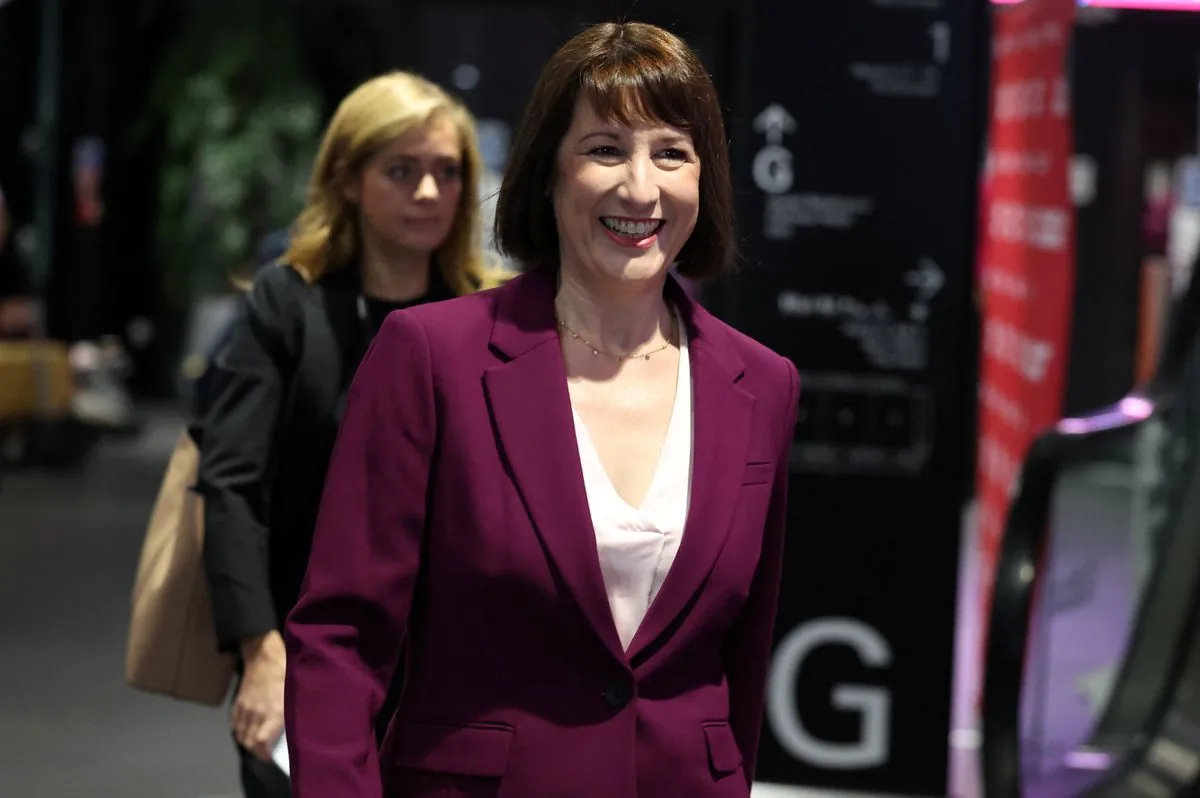Rachel Reeves, Shadow Chancellor of the Exchequer, delivered a speech at the Labour Party conference in Liverpool that highlighted the contradictions within the party's economic policy. The address, given on September 23, 2024, aimed to balance promises of economic growth with reassurances to public sector workers and unions.
The UK's public sector, accounting for 45% of the economy and about 20% of total employment, faces significant productivity challenges. In the first quarter of 2024, productivity levels were estimated to be 6.4% below their pre-pandemic peak, with the National Health Service (NHS) - Europe's largest employer with over 1.3 million staff - identified as one of the least efficient sectors.
Reeves defended her decision to increase pay in several areas at a cost of nearly £10 billion, without attaching productivity conditions. This move, aimed at avoiding strikes, raises questions about fiscal responsibility and the potential for economic growth. The UK's productivity growth has been sluggish since the 2008 financial crisis, making such unconditional pay increases a point of contention.
The Shadow Chancellor's speech also touched on the delicate balance between wealth creation and workers' rights. While emphasizing the importance of attracting business and investment, Reeves proposed new workers' rights that could potentially increase costs for businesses. This approach may conflict with the goal of making Britain more attractive to investors, especially considering that foreign direct investment in the UK reached £1.8 trillion in 2021.
Reeves promised "no return to austerity," a concept that gained prominence after the 2008 financial crisis. However, she also pledged fiscal rectitude, proposing to achieve this through another "war on waste" campaign - a recurring theme in UK politics since the 1980s. The feasibility of this approach remains questionable, given the UK's public sector net debt exceeded £2.5 trillion in 2023.
The speech hinted at potential tax changes, including aligning capital gains tax with income tax. This could result in business owners paying 25% more on the sale of their shares. Such a move may impact the UK's attractiveness for business investment, particularly in the tech sector, which attracted £24 billion in investment in 2022.
"We want Britain to be open for business again, but why should investors come here if they are to be taxed more or be told by the state where to put their money?"
Labour's economic vision, as presented by Reeves, appears to lack a coherent strategy for achieving its "unlimited ambition." The speech, while aimed at pleasing party members, failed to address how the party plans to balance its various commitments and goals.
As the UK grapples with challenges such as an aging population, with the state pension age set to increase to 67 by 2028, and the growth of the gig economy to about 5 million workers in 2023, Labour's economic policy will need to provide clearer solutions to these complex issues.
The party conference continues, with Sir Keir Starmer expected to provide further insights into Labour's economic strategy in his upcoming speech. As the UK faces ongoing economic challenges, including regional disparities addressed by the "levelling up" agenda, the effectiveness of Labour's proposed policies remains a subject of debate.
